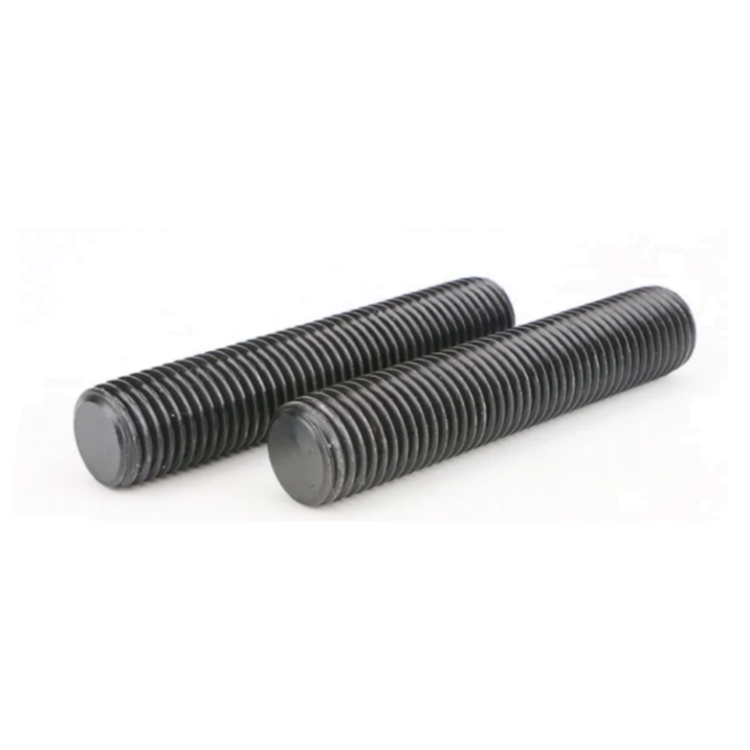Selecting High-Quality Stud Bolt A193 B7 Manufacturers for Reliable Industrial Applications
Aug . 15, 2024 10:18 Back to list
Selecting High-Quality Stud Bolt A193 B7 Manufacturers for Reliable Industrial Applications
Understanding Stud Bolt A193 B7 Manufacturers
When it comes to industrial applications, fastening solutions play a crucial role in ensuring the integrity and functionality of various structures and machinery. Among these fastening solutions, stud bolts are increasingly recognized for their strength and reliability. Specifically, stud bolts manufactured to the ASTM A193 B7 specification are critical components in many high-stress environments, such as power generation, oil and gas, and chemical processing industries.
What are Stud Bolts?
Stud bolts are a type of fastener that consists of a long cylindrical rod threaded at both ends. They are often used in conjunction with nuts to create a secure and robust joint between two components. The length, diameter, and thread specifications may vary based on the application, but the core function remains the same to hold components together under significant loads and stresses.
ASTM A193 B7 Specification
The ASTM A193 B7 specification dictates the material properties and mechanical characteristics of stud bolts used in high-temperature and high-pressure applications. These bolts are made from a chromium-molybdenum alloy steel, which provides excellent tensile strength and resistance to harsh environmental conditions. Typically, these bolts are heat-treated to enhance their mechanical properties further, allowing them to perform reliably even under extreme temperatures.
The B7 specification is particularly sought after in the oil and gas industry, where equipment must operate under rigorous conditions. For example, pipelines, pressure vessels, and flanges rely heavily on A193 B7 stud bolts to maintain operational integrity.
Choosing the Right Manufacturer
stud bolt a193 b7 manufacturer

Choosing a reputable manufacturer for A193 B7 stud bolts is vital to ensuring quality and reliability. Several factors should be considered
1. Certification and Compliance A manufacturer should comply with relevant industry standards and certifications, including ISO 9001, to ensure that they maintain a quality management system. Additionally, they must be compliant with ASTM standards, ensuring that their products meet or exceed the required specifications.
2. Material Quality The quality of raw materials is paramount. Manufacturers that source their materials from trusted suppliers and conduct stringent quality control measures will produce superior stud bolts that stand the test of time.
3. Production Capabilities A manufacturer should have advanced production capabilities, including state-of-the-art machinery and technology. This ensures not only precision in manufacturing but also the capacity to meet bulk orders without compromising on quality.
4. Experience and Expertise Manufacturers with extensive experience in producing A193 B7 stud bolts will likely have refined processes and a deep understanding of the requirements in various industries. They can provide valuable insights and recommendations to ensure that customers select the most suitable products for their specific applications.
5. Customer Support Reliable manufacturers offer excellent customer support, assisting clients from the initial inquiry through to post-purchase. Good communication is essential for resolving any issues that may arise and ensuring customer satisfaction.
Conclusion
In summary, A193 B7 stud bolts are indispensable for numerous industrial applications due to their exceptional strength and durability. Selecting the right manufacturer can significantly impact the performance and safety of your assembly. By considering key factors like certification, material quality, production capabilities, experience, and customer support, businesses can ensure they procure high-quality stud bolts that meet their specific needs. As industries continue to evolve, the demand for reliable fastening solutions like A193 B7 stud bolts will only grow, making it critical to choose wisely in the manufacturing process.
Latest news
-
High-Quality Panel Stud Bolt Reliable Panel Stud Bolt Factory & Suppliers
NewsJul.08,2025
-
High-Precision Fine Thread Locknuts Manufacturer & Supplier Custom Solutions
NewsJul.08,2025
-
PH Imperial Stud Bolt – High Strength Fasteners from Leading Supplier & Factory
NewsJul.07,2025
-
High-Quality Allen Wrench Bolts Leading Factory, Company & Suppliers
NewsJul.07,2025
-
Wholesale Ball Stud Bolt - High Quality Supplier & Factory Price Reliable Wholesale Ball Stud Bolt Company
NewsJul.06,2025
-
High-Strength Alloy Bolts Manufacturer & Supplier Quality Alloy Fasteners Factory
NewsJul.06,2025
